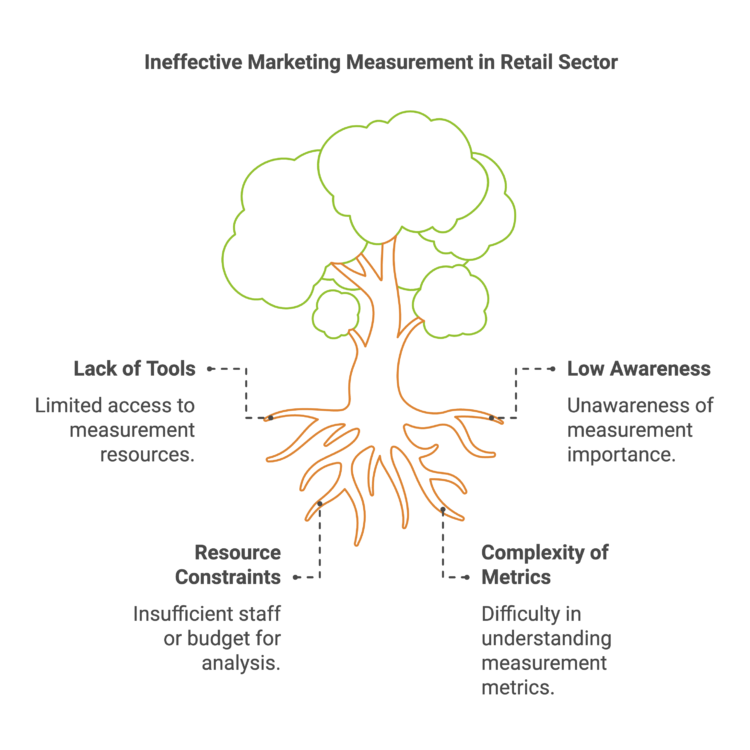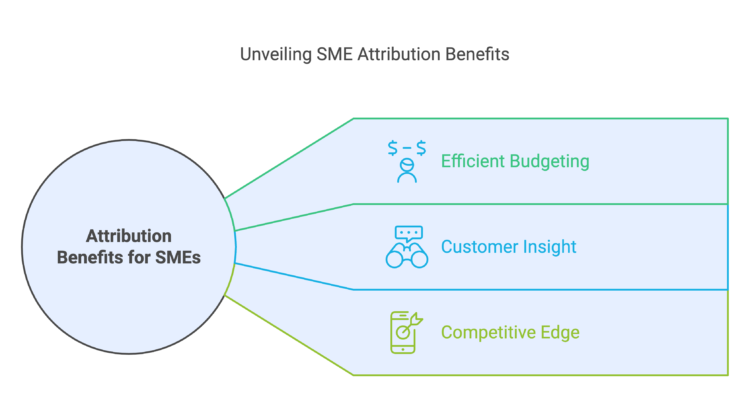Nigeria has over 600,000 small-scale retailers, mostly food stores, and these account for 97% of the Nigerian retail sector’s annual revenues, with large retail outlets earning only 3% of revenues. The same trend is evident in South Africa, where small stores also drive retail sales. More than 10,000 branded retail food outlets, including supermarket chains and petrol stations’ convenience food stores, and more than 143,000 independent stores account for over 80% of all South African grocery sales. Yet only a fraction of these businesses effectively measures the impact of their marketing efforts.
Marketing attribution is essential for sustainable growth, yet for African SMEs, this task comes with unique obstacles. This article dives deep into the challenges of marketing attribution in African markets and offers actionable solutions, using relatable examples and verifiable data to inspire you as a business owner to unlock the power of analytics.
The Attribution Challenge in African Markets
1. Fragmented Consumer Journeys
Africa’s diverse consumer landscape presents a labyrinth of offline and online touchpoints. Consumers might discover a brand on Instagram, visit a physical store to inspect the product, and then purchase WhatsApp. With such varied pathways, tracking the impact of each touchpoint becomes incredibly complex.
2. Limited Data Infrastructure
Many SMEs in Africa struggle with accessing robust analytics tools like Google Analytics 4 or advanced CRM platforms due to high costs and a lack of technical expertise. Furthermore, limited internet penetration in some areas and the heavy reliance on cash transactions result in minimal digital data collection.
For example, the FinScope study reveals that 94% of adults withdraw cash monthly, reflecting the dominance of cash-based transactions in daily retail activities. This lack of digital payment adoption makes it challenging for businesses to capture and analyze customer journey data effectively, hindering the development of data-driven strategies
3. Cultural and Behavioural Nuances
Understanding attribution in African markets also requires a grasp of cultural contexts. For instance, word-of-mouth, community trust, and family recommendations play a significant role in purchase decisions, often overshadowing more measurable digital channels.
4. Budget Constraints
Understanding attribution in African markets also requires a grasp of cultural contexts. For instance, word-of-mouth, community trust, and family recommendations play a significant role in purchase decisions, often overshadowing more measurable digital channels.
Data-Driven Solutions for SMEs
1. Adopt Hybrid Attribution Models
A one-size-fits-all attribution model rarely works in Africa’s unique context. SMEs should consider a hybrid approach, blending online and offline data, which works best for Africa’s markets. For instance:
- First-Touch Attribution for understanding where customers first learn about their brand.
- Multi-Touch Attribution for tracking key touchpoints across the customer journey.
- Offline Attribution to capture the impact of word-of-mouth, events, or store visits.
As a business, you can use a simple spreadsheet to map out customer journeys, assigning weights to each touchpoint based on its perceived importance.
2. Use Affordable Tools
Many SMEs shy away from analytics due to perceived complexity or cost. However, free or affordable tools like Meta Business Suite, WhatsApp Business, or Google’s free offerings can provide actionable insights. Even tracking sales spikes after specific campaigns can give small businesses a starting point for attribution.
- Meta Business Suite: Helps track social media performance across Facebook and Instagram.
- Google Analytics Free Version: Offers insights into website traffic and customer behavior.
- WhatsApp Business Analytics: Tracks message responses and customer interactions.
3. Collect Direct Feedback
When digital data is sparse, customer feedback becomes invaluable.
- Post-Purchase Surveys: Ask customers, “How did you hear about us?”
- In-Store Feedback: Encourage customers to share their buying experience through QR code surveys or suggestion boxes.
This manual data collection is a low-tech but effective way to understand campaign performance.
4. Collaborate with Local Experts
Many SMEs can benefit from working with local marketing agencies or consultants who understand the nuances of their markets. These professionals can provide tailored strategies that blend traditional and modern marketing analytics techniques.
5. Train and Educate Staff
Empowering business owners with knowledge is crucial. Short online courses, webinars or community workshops on marketing analytics can help SMEs understand how to track and measure their efforts effectively.
Key Benefits of Attribution for SMEs:
- Efficient Budgeting: Identify and prioritize high-performing channels.
- Customer Insight: Understand consumer preferences and behaviours.
- Competitive Edge: Stay ahead by adapting to market trends quickly.
 What Next?
What Next?
For African SMEs, the ability to measure marketing impact is no longer optional—it’s critical for survival in a competitive market. By leveraging affordable tools, hybrid models, and customer feedback, SMEs can transform their businesses.
At Marketing Analytics Africa, we specialize in helping businesses unlock the power of marketing analytics. Let us guide you in navigating the attribution maze to achieve measurable growth and success.
Ready to get started? Contact us today for a free consultation and take the first step toward building a data-driven future for your business.


 What Next?
What Next?


